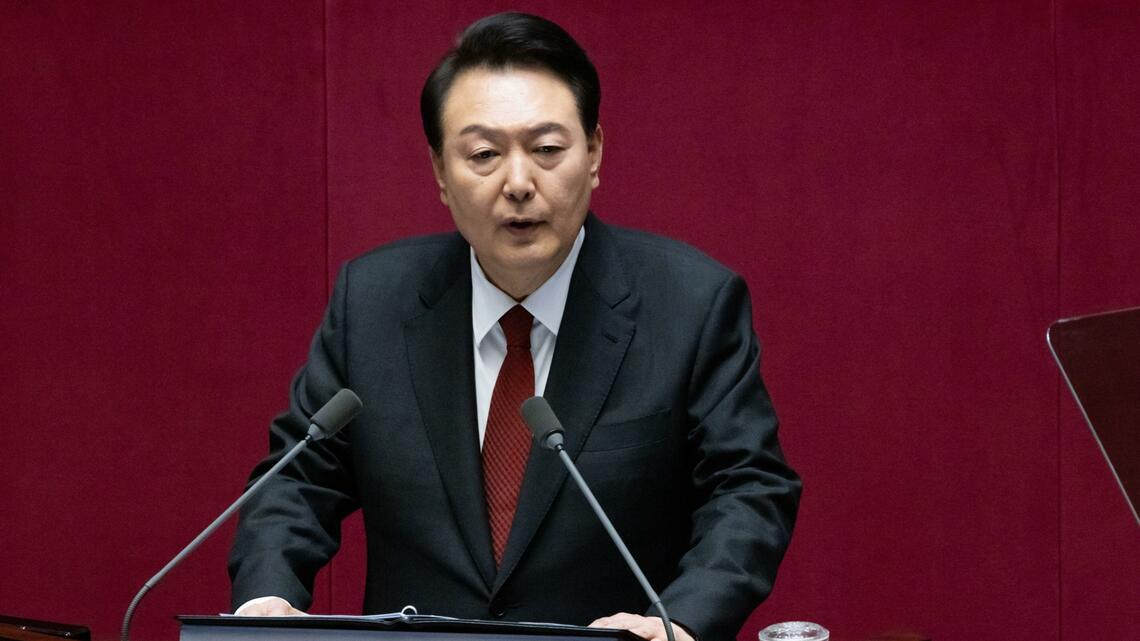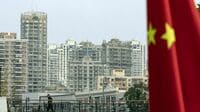
Global attention is understandably riveted by the two deadly wars being waged in Ukraine and the Middle East. But an exchange of artillery fire on January 5 in drills held by North and South Korea near a disputed border area served to remind the world that there is a forgotten front in the global wars.
The North Korean regime launched some 200 artillery shells into the waters off its western coast near two South Korean-held islands on the maritime border of the Northern Limit Line, or NLL.
The South Korean military announced plans to conduct its own “naval fire” drills. It is precisely that location that the two Koreans last had a deadly exchange of fire in 2010 and came perilously close to wider conflict.
The artillery exchange marked the end to a tenuous 2018 agreement to withdraw armed forces from the Demilitarized Zone (DMZ), where hundreds of thousands of heavily armed troops, including U.S. forces, face off.
The General Staff of the North Korean People’s Army claimed they were only acting in response to the actions of the South Korean “military gangsters” and warned that “if the enemies commit an act which may be regarded as a provocation under the pretext of so-called counteraction, the KPA will show tough counteraction on an unprecedented level.”
All this comes within a week of a gathering of the North Korean communist party where leader Kim Jong Un declared in unprecedented fashion that they were abandoning the goal of reunification and now would treat the South as an enemy state under the control of the United States.
In his speech to the meeting, Kim called on the People’s Army to be prepared to carry out a “great event” in the South where they would “subjugate the entire territory of South Korea by mobilizing all physical means and forces, including nuclear forces.”
Close analysts of the Korean situation are increasingly concerned about the danger of escalating tensions, not only because North Korea declared hostility but also the tough-minded attitude of the conservative government of South Korean President Yoon Suk-yeol.
“2024 is shaping up to be a year for provocations, heightened tensions, and greater potential for tactical clashes along the DMZ and NLL,” Bruce Klingner, former CIA analyst and Senior Research Fellow at the Washington-DC-based Heritage Foundation, told this writer.
“The potential for stumbling into conflict is rising. Both Koreas are leaning further forward on bold military moves close to the DMZ and President Yoon has shown a greater willingness to respond more firmly than his predecessor.”
The collapse of the Comprehensive Military Agreement reached in 2018 means that armed troops from both sides will now be in effectively closer contact.
The danger of exchanges of the kind that took place along the NLL is that “both sides will likely strive to avoid appearing weak,” says Andrei Lankov, a respected Russian-trained expert long resident in South Korea.
“Neither party is inclined to yield first, which could potentially lead to escalation. It’s quite conceivable that the North Koreans might decide to teach the Yoon administration a lesson, punishing it for its hyper-hawkish policy line.”
In an eerie replay of the Korean War, the rise in tensions comes as the Korean peninsula is again a zone of confrontation between Russia and China, backing the North, and the United States, standing alongside the South.
After a summit meeting last September between Russian dictator Vladimir Putin and his North Korean counterpart, the two countries have tightened their military and economic ties.
The North Korean regime has unloaded large amounts of its stored artillery ammunition onto trains heading to the frontlines of the Ukraine war. In recent days, according to U.S. officials, the Russians have fired North Korean-supplied ballistic missiles at Ukraine.
The North Koreans have stepped up the pace of their missile testing, including the recent launch of a spy satellite mounted on a long-range missile, along with further tests of intercontinental ballistic missiles (ICBM).
Nuclear facilities that can ramp up production of fissile material for warheads have recently been activated and there are indications of preparations for a new nuclear test, possibly of a thermonuclear warhead.
South Korean intelligence officials believe the Russians are actively assisting the perfection of their missile systems and may also supply advanced aircraft and other weapons.
“The regime’s latest rhetorical barrage signals the door for inter-Korean dialogue remains firmly closed as it continues to bulk up its nuclear and missile arsenals,” says Klingner.
The regime has also made it clear that it has no interest in pursuing talks or diplomacy of any kind with the Biden administration, understanding perhaps correctly that the Americans have no interest in such contacts either.
Moscow undoubtedly would not be unhappy if the U.S. was faced with yet another front in the global contest for power, though it is not clear that this new axis has emboldened Kim to act to seek strategic confrontation.
Nor is evident how China, which remains the main supplier of economic aid and trade to North Korea facing severe economic conditions at home, would respond.
China may not be happy with the current honeymoon between Russia and North Korea, argues Professor Kim Byung-yeon, a prominent North Korea expert and the head of the Institute of Future Strategy at Seoul National University.
“A North Korea backed by Russia and with advanced nuclear weapons on its hands may no longer kowtow to Beijing,” Kim wrote recently. “China could attempt to tame North Korea by cutting back on its economic assistance to the country.”
Provocation may not serve the purposes of China’s Xi Jinping, especially at a moment when he is trying to ease tensions with Washington and also improve ties with Seoul and Japan.
However, cautions Lankov, a long-time observer of North Korean relations with its powerful neighbors and allies, “we can imagine scenarios where China might try to send a signal to the Americans about its ability to create additional troubles – especially if preparations for a Taiwan invasion accelerate.”
Even so, Lankov believes that “North Korea has some reasons to confront South Korea – and also some reasons to remain quiet – but none of those reasons are significantly influenced by the situation in the Moscow-Beijing-Pyongyang triangle.”
The North Korean leadership may see a confrontation with Yoon and the conservatives as a useful way to influence the upcoming elections for the South Korean National Assembly, feeding fear of war and aiding the progressive opposition.
But the end-of-year policy shift made it clear that Kim also has little use for the progressives. In a statement issued on January 5, Kim Yo Jong, the flamboyant sister of the dictator, dismissed the previous liberal leader Moon Jae-in as “a wicked man with honey in his mouth and a sword in his heart.”
Still, most Korean analysts tend to believe that the Kim regime is not yet prepared to risk the potential benefits of the resurgence of trade with China and the new ties with Russia to push a confrontation past a certain point.
“Despite harsh rhetoric such as ‘pacifying South Korea’s territory,’ it is unlikely that Kim Jong-un will push the nuclear crisis to the extreme from the beginning of the year,” Professor Kim of Seoul National University, told Toyo Keizai.
“This is because they believe they have an advantage due to the competition for hegemony between the US and China and the war between Russia and Ukraine.
It is also expected that the economy will improve due to arms exports to Russia and the resumption of trade between North Korea and China. Therefore, it is likely that they will try to avoid actions that will significantly change the situation for the time being.”
The upcoming U.S. election may also factor in Pyongyang’s calculations. “If candidate Donald Trump is re-elected, there is a high possibility that a summit between the United States and North Korea will be held,” says Professor Kim, “so it may be a good idea to wait for that time.” But Kim also warns that if the North Korean economy does not revive due to help from China and Russia, the regime could act more aggressively.
The most optimistic view is that, for the moment, “Pyongyang is unlikely to initiate a strategic conflagration,” as former intelligence analyst Klingner put it. “In short, get your helmets on, but no need to get under the desk just yet.”



